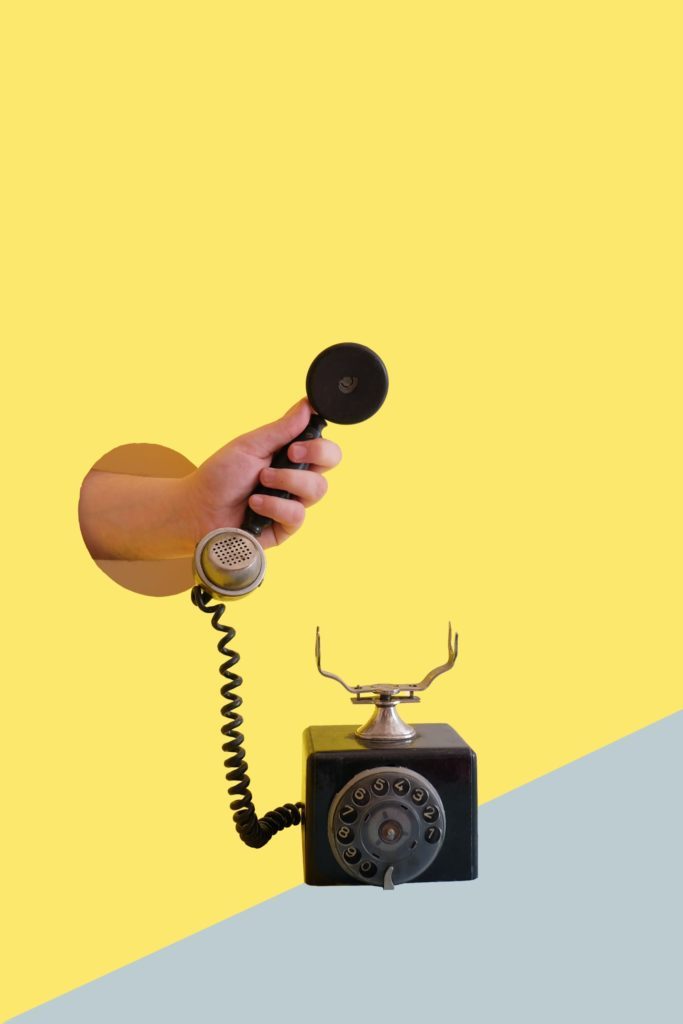
Customer Service is FREE
“The customer deserves to receive exactly what we have promised to produce, a clean room, a hot cup of coffee, a non-porous casting, a trip to the moon on gossamer wings. Philip Crosby “Quality is Free.”
Crosby’s rich management book was published in 1979. I am playing with his theme as the Courts re-toll during the Coronavirus pandemic. Quality is free – transferring the promise to customer service. In remaking a bureaucracy it is natural to start from where you left off. Let us agree on all of the good things that the bureaucracy does. Let’s keep doing those things and stop doing the counterproductive. If efficiency is going to be part of the success formula quality will matter. I would argue that quality comes out of starting from the beginning. Understanding with the organization’s mission is and then implemented with the commitment to quality, to flawless execution at every point. This may sound pie in the sky. Yes, Courts are dealing with humans under stressful circumstances. Will the Courts emerge offering a better justice and better customer service?
The justice system promises due process, absence of bias, a fair shake and good reasoning. When we deliver an unbalanced playing field, a structurally unpleasant experience in the Court building and the bewildering result, we fail to produce what we have promised. I know we can do better. Since coronavirus has killed the old Courts we can build the new Courts with quality, customer service and access to justice for all.
Health and Safety
Any infectious disease outbreak can be broken up into 5 stages: detection, isolation containment, verification, treatment, and eradication. Disaster Med Public Health Prep. 2020 Apr 3 : 1–2.
Published online 2020 Apr 3. doi: 10.1017/dmp.2020.67 The Petri-Dish Effect
In the throes of Coronavirus reports are distributed by the minute regarding the spread of the disease through the air, contact and water borne pathways. The Courthouse has always been a historical gathering point. A place for the adjudication of disputes according to the rule of law, of course. If a place where debates would be conducted. A place where important issues can be addressed in a spirit of openness and a frame of civility. The Courthouse represents a community meeting point and with a set of behavioral standards. Time was we would dress a certain way and act a certain way walking in and around the Courthouse. Sensibilities have changed over time but the Courthouse remains a stable part of the community with some time honored elements. October 16, 1854, a 5.5 hour debate was conducted between Illinois’ senate candidates, Stephen Douglas and Abraham Lincoln. The location was the Peoria Courthouse and Lincoln asserted for the first time, “all men are created equal.”
The Courthouse has always been a place where safety is a priority. People come together, sometimes a lot of people to resolve a big dispute. It may not be a big dispute to everyone in the community but almost always a big dispute to the parties to the case. Securing public places such as Courthouses, took a big leap after 9/11. Fortunately, there have been very few significant issues in our Courts. Screening at public entrances tends to be more than sufficient to keep the Court customers, the judges and staff and the lawyers safe.
When we right size Court appearances we will significantly cull down the number of people that enter the Courthouse on a given day. It makes it safer for everyone. When we schedule physical and virtual appearances in Court it makes it safer for everyone. When we identify the high-risk cases and high-risk individuals and take a little extra precaution we make the experience safer for everyone. Fewer people entering fewer doors at designated times makes the Courthouse experience safer for everyone
Criminal Justice
It is a bit odd that criminal cases have been leaders in killing the Courts for years. For years local and local state and federal Courts have utilized video conferences between inmates and the Courtroom. What a brilliant utilization of a powerful and improving technology.
Criminal case Court appearances involve extensive coordination and utilization of a large quantity of resources. In order to transport an inmate to a live Court appearance requires releasing the inmate from the jail or prison, tightly securing the prisoner, transporting the prisoner to the Courtroom, ongoing monitoring for a matter that might take all of five minutes.
Everyone else in the Court building must wait for the elaborate procedures needed to secure and transport one or more inmates to and from the Courtroom. Everyone has to clear out of the benches. Hallways must be cleared to move inmates through. because so many resources are deployed to get an inmate in and out of a Courtroom, inmate cases get priority. Accordingly, everyone else waits.
Why inconvenience everyone that’s not in jail to bring one person over to the jail for a five minute appearance? It never made sense and by and large Courts adopted smarter practices, even before the coronavirus pandemic.
People in jail are often suffering from health issues small and large. Having their administrative appearances limited to a quick video conference benefits the inmate who is not forced to move through a crowd of people who have their own microbes and the inmate doesn’t drag the germs from the jail and into the Courthouse. It is safe earth and healthy earth to utilize technology. The funny thing is this is going on for years and years perhaps decades and no one seems to twist enough about it. Why this was not implemented for cases that have even less constitutional importance is a mystery. Cases are not won and lost based upon whether an inmate was swept from the jail to the Court and back. Some inmates actually like the show up at Court. it is like a field trip. A whole bunch of resources are thrown at them so their rights could be protected and they can do a little performance in front of the judge and whoever else is up in the Courtroom at that time. Certainly, the inmate can perform while on the videoconference but the impact is much muted.
Because moving inmates requires a load of resources, scheduling time for inmates who actually need to be in Court has also been standard practice for some time. Rather than have officers idle for hours inmates Court appearances can be scheduled for specific time. Criminal law trailblazes technology and helps the coronavirus kill the Courts. Scheduling time for constitutionally protected Court events makes perfect sense. There are so many hours in the Court day in so many cases to be adjudicated. Give everyone a reasonable time slot so that we do not have a cattle call of dozens of cases all at once raising the need for security and exposing everyone to a greater range of germs and potentially disease. Our Court system is built around due process in the adjudication of criminal matters. The coronavirus will never kill that lofty goal. The coronavirus makes it so that we are forced to deploy our best and most efficient resources in the adjudication of criminal law. Thanks to the coronavirus pandemic lessons from the criminal Courts translate into other areas of the law: civil cases, family cases, as smaller claim cases landlord-tenant and municipal Court.
Public Health
“Transparency is critical in public health and epidemics.”
T.K. Naliaka
The issue of public health is quite a bit more complex. The Courthouse has always been a bit of a petri dish. While weapons are taken away and beverages are restricted, disease from the common cold, seasonal flu or serious infectious disease are neither screened for nor restricted. Claiming you have a cold is no excuse for skipping Court. Every day in Courts around the country we slam loads of people together. Some types of Court matters tend to draw bigger crowds. Traffic Court held only every few weeks will batch a bunch of cases for judicial efficiency. Same judge, Court room, Court staff, prosecutor and defense lawyers. It makes perfect sense. Bring a whole bunch of people together, the cases will be resolved all at once and everybody will be in and out within a few hours. Good policy.
Landlord-tenant Court tends to be a similar model. A few landlords have lots of tenants and lots of disputes. Bring everybody together some tenants will pay, some will not, some will agree to move out in some cases, very, very few will need genuine judicial intervention. Piling a bunch of people together is a normal occurrence. Small Claims Court tends to draw a big crowd of people with lower dollar disputes who will be in and out in a few hours. The problem is it is unhealthy and grossly time inefficient.
Piling a bunch of people with different bacteria, different hygienic standards together to breathe on each other to touch the same surfaces all at the same time is a prescription for the transmission of infectious disease.
Jury cattle calls start with dozens of people to draft a small group that will serve in a civil case perhaps six jurors or in a big criminal case up to 14 jurors including alternates. One infected juror can pass infection to an entire jury pool. Of course those jurors have friends and family and people out in the world who they are in close contact with. So juror number two might sit next to during number seven and wind up exposed to all that your number seven in her contacts in the family home and in the community have contributed to her pile of germs. It sounds a bit more creepy than it is but I hammer this point because it can be alleviated with the simplest of technological deployments.
Jurors
Courthouse stakeholders with the least to gain serve as our volunteer jurors. Anecdotal study of jurors tells me that jurors skew to our older seasoned citizens. They may be the folks with the most free time to devote to jury duty. Failing to appear for jury service can have serious consequences including arrest. My first mentor was the retired Judge Thomas E. O’Brien, now at Bathgate, Wegener & Wolf, P.C . I addressed this issue with him and he shared that there is little to no chance that the Courts will exercise its powers to compel juror attendance due to coronavirus fears. No judge or Court manager wants to be associated with a headline that starts with the arrest of a senior citizen who fails to appear for jury service because of health and safety concerns.
Coronavirus kills the jury system. The reborn jury system will need to accommodate an elevated level of health and safety for the jury pool. The Courthouse needs to be in the place where jurors can serve the country and the interests of justice without exposing themselves to infectious disease. Juries tend to be picked from a large pool. The entire pool is ordered to show up at the Courthouse and funneled down through written questionnaires and jury voir dire. The pool can be thinned without requiring so many jurors to show up with such a low likelihood of being picked. This is another area deployment of technology will give rise to a reborn Court system.
Cover image Courtesy of Elena Koycheva via Unsplash

